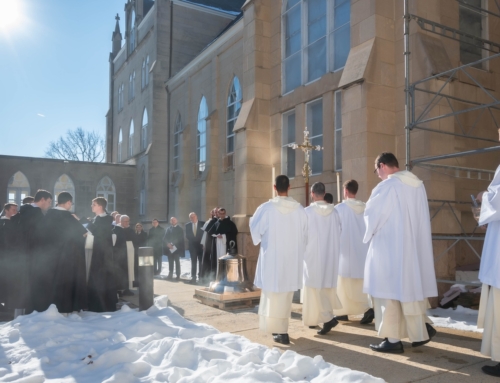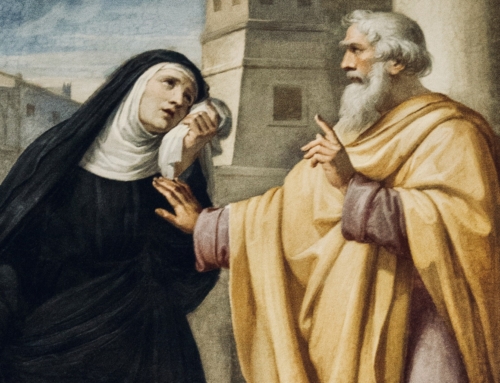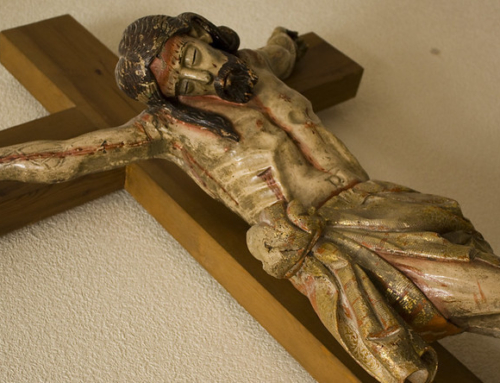Editor’s note: This post was originally published on September 11, 2012. Fr. John Sica was ordained to the priesthood in May 2016 and now serves on the faculty of Providence College.
When Pope Benedict commemorated the tenth anniversary of 9/11, he rejected the most pernicious notion in the ideology of the terrorists: God can be used as a justification for acts of destruction and murder. Just as significantly, he invoked “the infinite mercy of the Almighty God” upon all of the victims.
Pope Benedict’s remarks recall the more extensive comments of Blessed John Paul II in the aftermath of 9/11. “Terrorism,” John Paul said, “exploits not just people, it exploits God: it ends by making him an idol to be used for one’s own purposes.” The “god” who serves as a convenient justification for terrorism is not the living God, but merely a projection of the selfishness and hatred of men.
John Paul contrasts this false god with the God of mercy, who suffered out of love for His people: “The God who enters into history to redeem us, and through the dramatic events of Good Friday prepares the victory of Easter Sunday, is a God of mercy and forgiveness.” And it is on the model of His forgiveness that we must learn to forgive others.
Our belief in God’s mercy does not arise merely from abstract speculations of pure reason, nor from comforting fantasies of wish fulfillment. Rather, it comes from God’s unique and definitive entry into history, by which He touches our lives just as surely as He did the lives of the Apostles two millennia ago. By becoming one of us, God has radically and irrevocably altered the human condition, robbing sin and death of their apparent victory:
The Church testifies to her hope, based on the conviction that evil, the mysterium iniquitatis, does not have the final word in human affairs. The history of salvation, narrated in Sacred Scripture, sheds clear light on the entire history of the world and shows us that human events are always accompanied by the merciful Providence of God, who knows how to touch even the most hardened of hearts and bring good fruits even from what seems utterly barren soil.
The mystery of Christ’s death, and of His triumph over death, is the lens through which we must view all of human history, in both its depravity and its nobility. In the light of the Resurrection, we see that evil cannot ultimately triumph, but that God’s mercy and love will prevail. Taking to heart, then, the words of Pope Benedict and Blessed John Paul II, let us invoke God’s mercy and compassion on the victims of this attack, and upon all those who still mourn.







